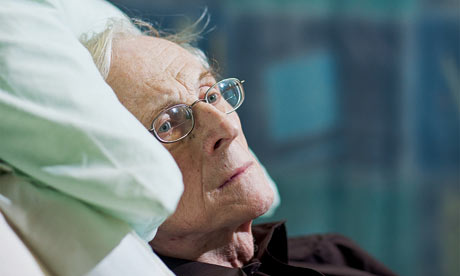
I was a doctor for 40 years - it was an interesting and rewarding occupation, and it never crossed my mind that while I was making people better, the hospital could actually be making me ill.
As a child, I became fascinated by anatomy and initially I thought I would be a biologist, but having asthma led me to want to practise medicine. I would regularly wheeze and fight for breath at night, and my mother would run to the doctor's house. This was before the formation of the NHS, and calling the doctor was a massive event. He'd give me adrenaline spray, and in a few seconds a huge load was lifted from my chest - it felt like a miracle. A man who had this sort of power was a man I wanted to be.
So I read medicine at Cambridge and then applied to the Middlesex hospital to continue my training. It was a series of stone buildings connected by miles of underground passageways that were used by staff as a quick way to get around. Monstrous pipes lined the walls, carrying hot water to heat the draughty old hospital. They were insulated with a matted, greyish lagging, and it was falling off in piles. Perfunctory attempts were made to sweep it up, and the air was always rather dusty with the stuff. I now know it was asbestos.
This was in the 50s, and at the time no one knew about its harmful effects. I used to walk through this warren several times a day during my three years at that hospital, with nothing more on my mind than the next patient. It was only in the 70s that people realised that when asbestos crystals are inhaled, they penetrate the breathing tubes and lungs, causing difficulty breathing and pain - the condition asbestosis. Sometimes this inflamed area becomes malignant and develops into a lung cancer, mesothelioma. The strange thing about the effect of asbestos is that it can take 40 years for the symptoms to appear, which is why it took so long for asbestos to be banned.
Asbestosis is usually contracted by those who work in an industry using asbestos, so it didn't cross my mind that my contact with it could have damaged my health. I never came across it in a patient, partly because, as a paediatrician, I treated children, and also because it was very rare.
But last September I went to my GP complaining of shortness of breath. My lung capacity had dropped by a third and the doctor found signs of fluid in one lung. I ran through the possibilities in my mind - TB was a likely option, as I also had a high temperature in the evening and night sweats, so I prepared myself for the tedious but ultimately curative course of antibiotics.
Then I had a biopsy and the GP called me in for the results. The young man tilted his head on one side when I asked if it was TB and he said sadly, as if it was his fault: "No, it isn't, I'm afraid. It's mesothelioma." I knew this type of lung cancer was notorious for being resistant to the usual methods of chemotherapy and radiotherapy. The only treatment was palliative. Now my life was measured in months rather than years.
I'm the patient now, and for the first time in my life have had to be in hospital. It's been a mixed experience - sometimes alarming, when I don't receive the urgent treatment I need, and sometimes heartening, when excellent doctors and nurses care for me with devotion and humour.
I don't feel any need to pursue litigation - why should the poor old NHS be given a lashing for a problem it wasn't aware of? I remember when it was formed - that wonderful time of socialism being applied practically to the running of the country. I believe in that principle and followed it in my own career, choosing never to do private practice. Working in the egalitarian environment of the NHS was immensely rewarding, being able to treat all children, regardless of social status.
It saddens me to see the decay of the NHS and also that one of its hospitals may have let me down. The Middlesex hospital is now closed and the building empty, sitting like a white elephant off Tottenham Court Road in central London.
As a scientist, I'm reluctant definitively to attribute my lung cancer to the Middlesex, but I do wish they had known that asbestos was harmful when I was walking up and down those corridors, and demolished the whole bloody place.
• Do you have an experience to share? Email experience@theguardian.com

